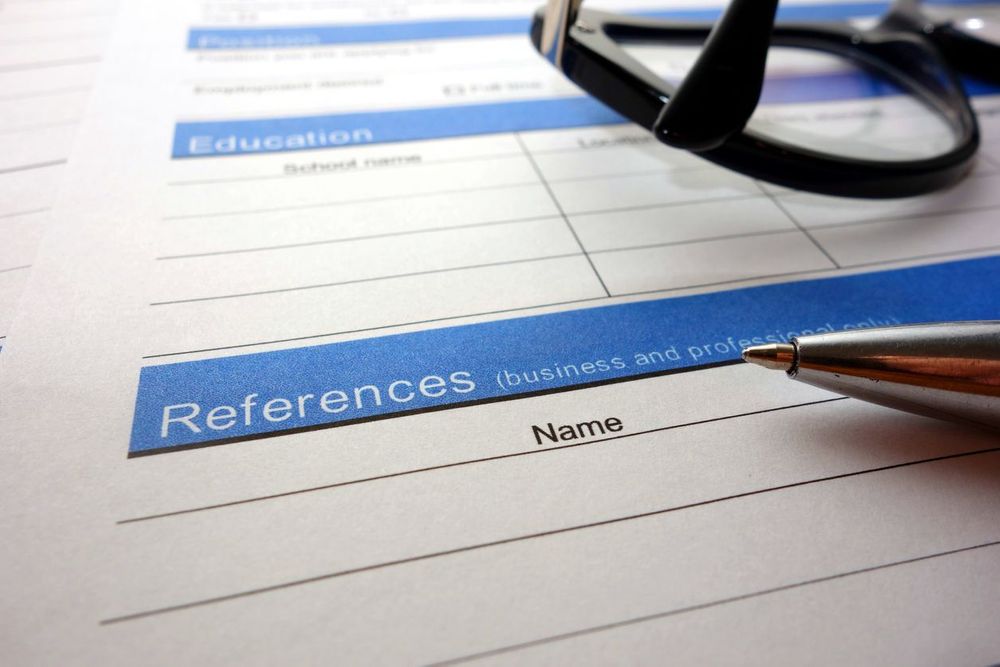
Some aspects of the job search are more likely confusing than others. While most people understand the basics of job interviews and resumes, few realize the purpose of references or best practices for providing them. This guide tells you everything you need to know about professional references.
You probably already know what a job reference is, but you might not realize just how important it is in the hiring process. When you apply for a job, the employer wants to see that you're an ideal fit for the position and the company. Although your resume gives them a general idea of your abilities, it's just a document. Some people look great on paper but have horrible work ethics or habits.
A job reference is a way for an employer to verify what's on your resume and to learn more about you as a person. After speaking to your references, a hiring manager has more insight into your professional conduct. They can find out whether or not you were truthful on your resume and learn how you'll fit in with their company.
There are several types of job references. If an employer asks for a professional reference, they want to speak with someone who worked with you closely. The reference should be able to speak about your work habits, personality, and skills. Usually, you need to supply the prospective employer with at least one professional reference. They usually need an email, phone number, and title for your reference.
If the employer doesn't specify a professional reference, you can use a personal reference. However, it won't hold as much weight as a professional reference. Regardless of what the employer requests, you should provide at least one professional reference.
Personal references are much easier to provide but don't tell the employer much. If you include a friend or family member on your reference list, the employer may not even bother to call them. They should be listed as a last resort.
To put it simply, a professional reference can be anyone you worked for or worked with. While a reference can be a manager or supervisor, it can also be a colleague. As you might expect, a manager is a better professional reference than a colleague. But you should pick a colleague over a manager if the manager won't have positive things to say about you.
If you worked as a manager, you could use a subordinate as your reference. This is an excellent way to showcase your leadership skills, as long as you pick a good reference.
Think back to your past and make a list of everyone you worked closely with. Then, go through the list and cross off anyone who had a negative experience with you. Similarly, cross off anyone who seemed indifferent about you. Only use references you feel confident about; the last thing you need is for a reference to sabotage your chance at a new job.
As you go through your list, make sure you have current contact information for the reference. If you can't provide an updated phone number or email, the hiring manager won't be able to reach your reference. You should reach out to a reference before using them for a job prospect. By doing so, you ensure that you have accurate contact information and don't surprise the reference with an unexpected call from the hiring manager.
When you choose a reference, think about what stories the person might have about you. Were there challenges you overcame together? Is the reference a reputable person who seems trustworthy? You don't want a reference who will lie or speak poorly of you.
Most employers call references right before they're about to offer a candidate the job. However, some employers choose to check references earlier on in the process. Either way, your references can make or break the deal. If you don't have a positive reference, you probably won't receive a job offer.
Throughout the hiring process, there are many mistakes you can make. One of the easiest mistakes to avoid is using poor references. If you have to, use an old college professor or a close colleague as a reference. It's better to have a positive reference from an educator than a negative reference from an employer.
Throughout your career, consider how you can build up your reference list. Remain in touch with former managers and always leave jobs on good terms. If you burn bridges, you won't have a strong list of references.
You might be wondering whether or not you truly need references. In reality, very few employers don't require references. Employers go to great measures to make sure they find someone who fits well with their company, and references are one way to do that.
In most cases, references confirm a hiring manager's opinion of a candidate. They give a manager peace of mind that the candidate is being honest on their resume. If the candidate has any red flags, calling a reference can either confirm or deny the manager's suspicions. The reference check is one of the only ways for a hiring manager to differentiate fact from fiction.
You have a couple of options for providing your references. First, you can include them with your resume. If the job listing requests references, be sure to use this method.
Secondly, you can wait until a hiring manager requests the references. Just make sure you have a list of references ready because you shouldn't scramble to find someone at the last minute.
Finally, you can show up to the interview with a list of references. Whether or not an employer requests references, you can speed up the process by providing them during the interview. It also shows the employer that you have nothing to hide.
Lorem Ipsum is simply dummy text of the printing and typesetting industry. Lorem Ipsum has been.
